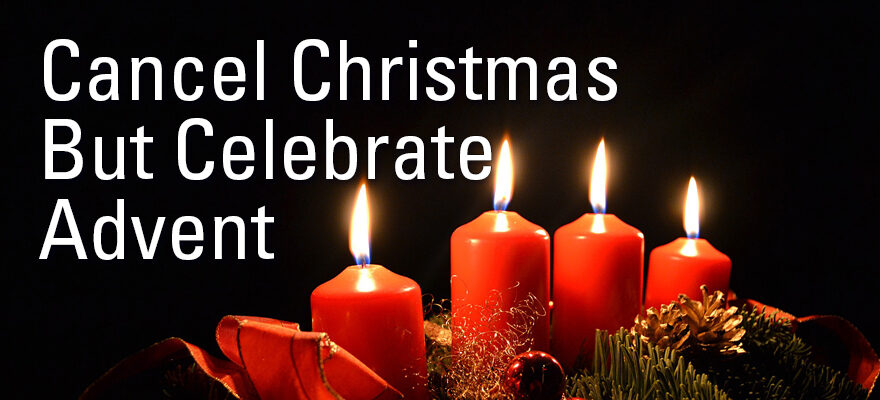by Franklin Dumond, Director of Congregational Ministries
Long before Christmas became a commercial event that began appearing in retail outlets alongside Halloween, the church developed an approach to Christmas that made it a season of anticipation and preparation in the weeks before the holiday.
As a young pastor, I remember struggling with how to fit all the favored carols and all the special programs of Christmas into the one Sunday before December 25. That was what I remember of the Christmas celebrations in my rural home church. Then I stumbled onto Advent and learned not only the joy of anticipation and celebration but also the beauty of preparing a congregation for that special time of the year.
Advent is the season marked by the four Sundays prior to December 25, climaxing with Christmas Day and the wonderful good news, “unto you is born a Savior which is Christ the Lord.”
Many churches mark Advent by using an Advent Wreath composed of greenery and five candles. Artificial greenery is much to be preferred over live greenery, which may present a fire hazard in the later weeks of Advent. Pillar-type candles provide the safest use of candles, as only rarely do they drip or spill.
Lighting the candles one each Sunday allows children to excitedly count the Sundays before Christmas as one candle burns on the First Sunday of Advent, two on the Second Sunday of Advent, three on the Third Sunday of Advent, and four on the Fourth Sunday of Advent to remind everyone that Christmas is almost here!
Many churches will use traditional themes of Advent, but I always enjoyed using Advent to tell the Christmas story in small parts.
The four traditional advent themes for the four advent Sundays are:
- The Candle of Hope.
- The Candle of Peace.
- The Candle of Love.
- The Candle of Joy.
As a Baptist pastor, I always found telling the story of Christmas leading up to the birth of Jesus was well-received by the congregation and a special treat for the children who hurried to the Advent Wreath for the Children’s Message. Because I used a nativity set with a variety of figurines, the children could help place one or two figures in the scene each week as we explored the Christmas story.
Advent could be organized around some of these elements of the Christmas Story:
Nov. 29 First Sunday of Advent Prophets and Bethlehem
Dec. 6 Second Sunday of Advent Angels
Dec. 13 Third Sunday of Advent Shepherds
Dec. 20 Fourth Sunday of Advent Mary and Joseph
Friday, December 24, Christmas Eve, will be a good time to light the Christ Candle since very few churches have services on Christmas Day. If a Christmas week service will not be held you might consider lighting the Christ Candle at the conclusion of the worship service on December 20. (Additional details for using the Christ Candle at the Christmas Eve Service are included in the Christmas Planning Pack available by request.)
While Baptist churches do not generally celebrate Epiphany and the arrival of the Wise Men, it is easy to introduce them as a kind of epilogue on the Sunday following Christmas which will be December 26, 2020.
It’s Worth Mentioning
Even if you are not using Advent in your church it is worth using the Sundays of Advent to mention some aspect of the Christmas story. The more often Christmas is connected with the church the more often we are able to develop and reinforce a Christian worldview.
Even worship plans and sermon themes that are unrelated to Advent can be given an Advent flavor by adjusting an illustration or changing a song title. While some church leaders do not believe Christmas deserves 1/12 of the annual emphasis in a church, others who recognize the overwhelming significance of the Incarnation believe that the message of Advent cannot be restricted to just one month of the year.
Ready for the next step? Then download our e-book “2020 Christmas Planning Pack”. The 2020 Christmas Planning Pack is a Church Talk Publication designed to help stateside General Baptist leaders cope with the “new normal”.




